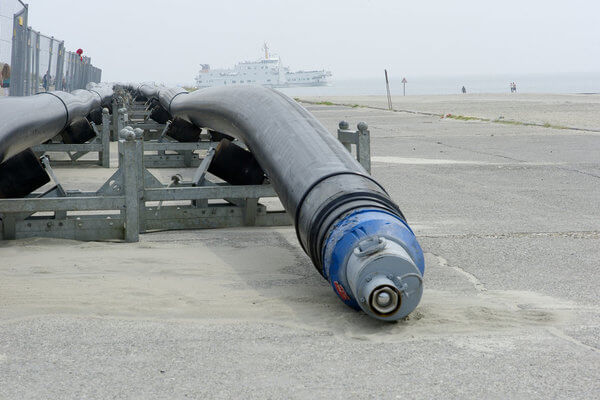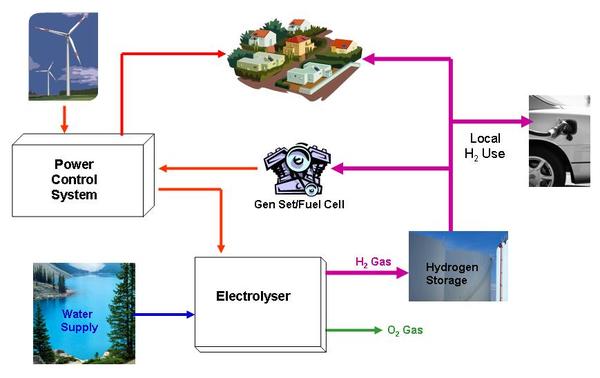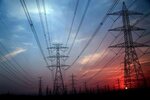News Release from windfair.net
Wind Industry Profile of
Offshore Expansion to Be Linked to Hydrogen Generation
Energy companies Shell and Siemens and transmission grid operator TenneT want to advance the development of hydrogen production in Germany. According to a study by E-Bridge, the basis for this will be a new tender model that would enable an additional 900 MW of offshore wind capacity coupled with hydrogen generation to be put out to tender from 2026. The goals of the German government for the expansion of renewable energies by 2030 and the global climate policy goals could thus be achieved realistically.
In the unanimous opinion of energy experts, the current plans for a further expansion of wind energy in Germany do not sufficiently exploit the potential of offshore wind energy. However, since hydrogen will play an important role in the energy mix of the future as a basis for many Power-to-X applications for storage and other uses of electricity surpluses, the idea has arisen of coupling offshore expansion to the simultaneous generation of hydrogen. This would also have the advantage of reducing the load on the power grid onshore when too much wind is blowing at sea.
Schematic diagram of a wind-to-gas hybrid power plant (integrated electrolytic hydrogen production without subsequent methanisation) (Image: Wikimedia Commons)
Dr. Thomas Zengerly, CEO of Deutsche Shell Holding GmbH, explains the advantages: "Hydrogen electrolysis facilitates the use of electricity from renewable energy sources, contributes to the stability of the electricity grid and produces hydrogen of the required quality for the use in sectors like mobility and industry. Thus it plays an important part in the cross-sectoral transformation of energy systems".
"In order to master the energy transition without fossil fuels, we have to decouple renewable electricity generation from consumption," says Prof. Dr. Armin Schnettler, Head of Energy Research at Siemens. "PEM hydrogen electrolysis is a key technology for this."
Over the past few years, Germany's energy transition has fallen behind in international comparison and the country will fail its climate protection targets for 2020. The targets for 2030 are currently in jeopardy, too, unless a decision will be taken to phase out coal in the near future. After all, the German government has meanwhile launched a long announced package of measures. The offshore wind industry though is not satisfied with the package, criticising that too much potential is wasted.
However, there is cause for concern. "An expansion turbo for high-yield offshore wind only makes sense if we link it to high-performance storage technologies such as power-to-gas. This provides flexibility, reduces the load on the power grid and makes the power supply more reliable. And for the period after 2030 it also means less additional grid expansion," explains Lex Hartman, Managing Director of TenneT, at the presentation of the study.

Cable to transport power from offshore wind farms to the coast (Image: TenneT)
The study envisages that between 2026 and 2030 German offshore wind farms with a capacity of up to 900 megawatts will be linked to hydrogen production. Areas not used for regular offshore power generation tenders will be considered. The electricity generated at sea would be connected and transported ashore by the transmission grid operator to ensure centralised and coordinated planning. Onshore this electricity would be used to generate hydrogen. The electrolysis plants required would have to be connected to the onshore extra-high voltage grid and thus electricity could be transported to its destination for further use.
- Author:
- Katrin Radtke
- Email:
- press@windfar.net
- Keywords:
- Shell, Siemens, TenneT, study, hydrogen, offshore, wind farm, electricity, storage, sector coupling, energy transition, Germany, mobility



























